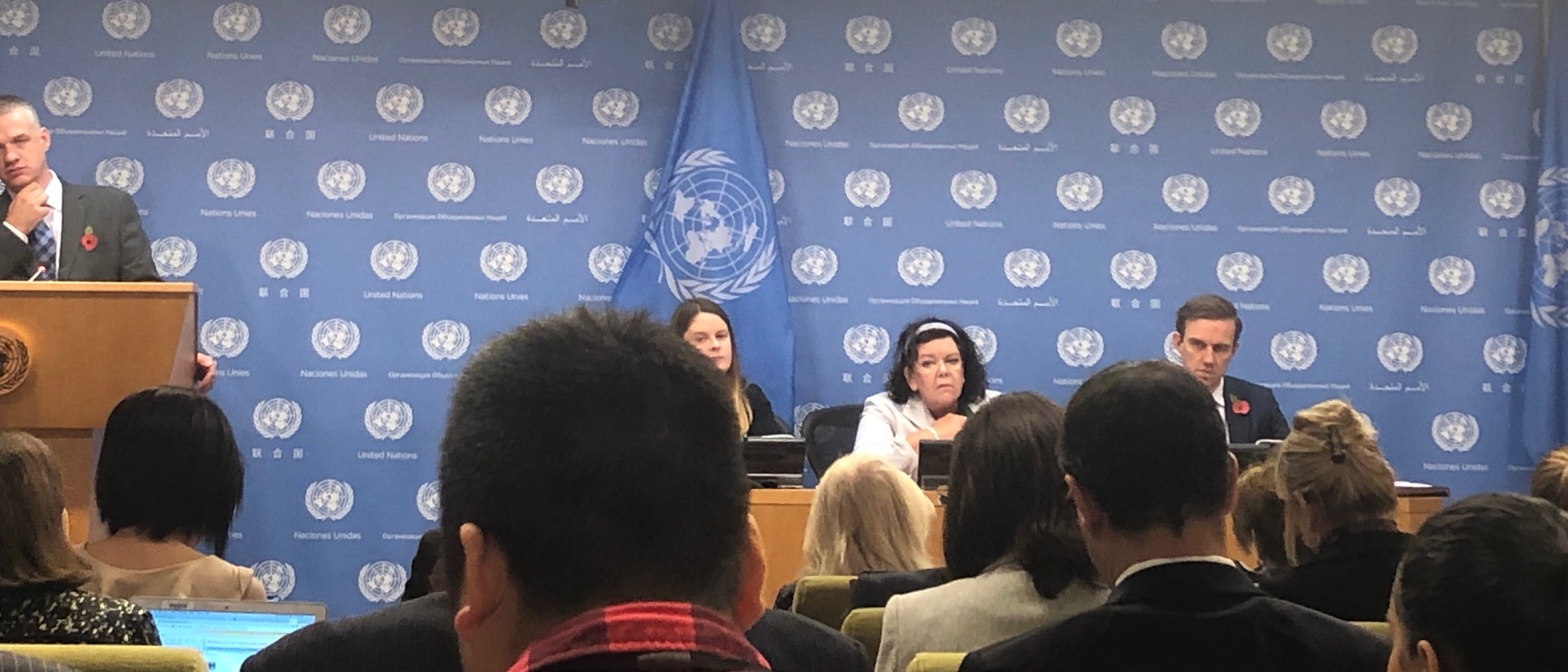On her first day as the President of the UN Security Council, UK Ambassador Karen Pierce warmly greeted journalists at the monthly press briefing, telling them she was “delighted” to take over what she called a “British” presidency for the month of November.
At the UN event, Ambassador Pierce ticked-off a busy agenda, describing the next four weeks as a “heavy-duty,” in particular for Yemen, Syria, Somalia and Libya. The focus will be on ordinary citizens who have been impacted by unresolved conflicts and ongoing insecurity. Ambassador Pierce said the Security Council “will raise issues around the importance of respect for international law, religious persecution, attacks on media freedom and women, peace and security.”
But she was unable to answer all questions in detail, for example, how the Security Council would address Libya’s and Italy’s agreement over how to handle migrants crossing the Mediterranean.
Tomorrow, the controversial agreement, which has been described as “anti-migrant”, will be automatically renewed. In the past, UN Secretary General António Guterres said to this publication that an agreement with a country that cannot ensure the safety of migrants disrespects international law. Recent reporting revealed dangerous associations between Libya’s Coast Guard and human traffickers.

When the UN Security Council holds its UN Support Mission in Libya (UNSMIL) briefing with Special Envoy Ghassan Salamé on November 18th, it seems that this topic will not be a top priority. In answer to our question, Ambassador Pierce said the Security Council would be “open to raising the migrant and human trafficking issue, but there’s also a lot of other aspects of Libya to discuss.” She did not provide further specification.
In a candid moment, La Voce di New York asked a final question: how was her work affected by Brexit? The seasoned ambassador addressed the question in three succinct points, adding, “British diplomacy is alive and well–thank you for asking– and thriving.” After outlining the democratic processes that had been followed, and the deal that had been made with the European Union, she suggested the UN’s importance for the UK would grow. “We recognize that the UN will be an even bigger stage for British diplomacy once we leave the European Union.”
La Voce Libya’s question at 21:35 minutes; La Voce Brexit’s question at 45:07 minutes.
La Voce di New York: Can you share with us how your work has been affected, and how it will be affected by continuous debate about Brexit and that situation? Is UK diplomacy ok, or is there also a problem with that?
Ambassador Pierce:
“Point 1: The UK doesn’t have problems. It has a democratic process on Brexit for which there is now a plan, and a deal reached with the EU, and there is also a British general election.
Point 2: British diplomacy is alive and well –thank you for asking– and thriving, and hopefully going to have a successful and productive presidency of the Security Council in November, underscoring our responsibilities as a permanent member.
Point 3: In the UN, we recognize that the UN will be an even bigger stage for British diplomacy once we leave the European Union. We want to make the most of that. We want to help the UN thrive and prosper as it comes into its 75th year. We want to keep the UN at the apex of the rules-based, international system, the multilateral system, and we want to put our shoulders to the wheel on all of the big issues of the day, partnering with those who don’t agree with us as much as with those who do. It’s a big task, but I don’t see any sign that UK diplomacy is in any way hindered by anything, to be absolutely honest, except possibly the recalcitrance of some members of the Security Council; but that was always with us.”












